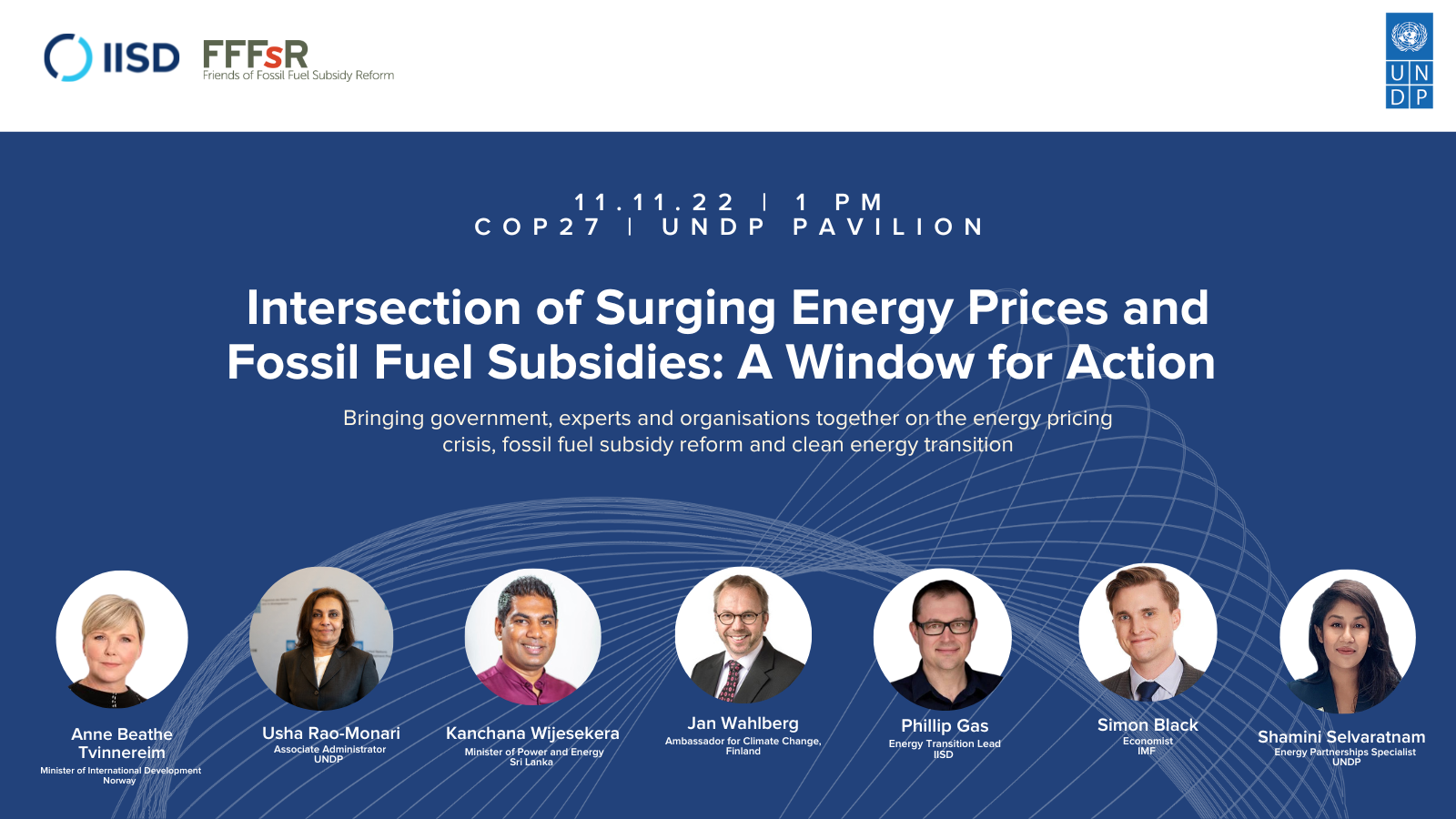COP27 | Intersection of Surging Energy Prices and Fossil Fuel Subsidies: A window for action
October 24, 2022

11 November 2022
1 - 2pm
COP27, UNDP Pavilion
Fossil fuels are the primary cause of human-induced climate change, causing pollution and premature deaths and leading to other negative externalities such as urban congestion and biodiversity loss. Fossil fuel subsidies are often intended to protect the poor, but most subsidy benefits tend to be captured by higher-income households, exacerbating inequality. Governments may also be constrained by subsidies afforded to the electricity sector that have similar fiscal and economic impacts but deter investments in new energy sources (mainly in renewable energy), which can be a significant growth dampener.
Due to the current geopolitical and energy crisis context, many countries have either stalled progress on Fossil Fuel Subsidy Reform (FFSR) or even reimplemented some type of fossil fuel subsidies. However, despite fossil fuel subsidies undermining the credibility of public climate commitments, reducing perceived energy transition risks and limiting financial sector action, governments are using tax breaks, price caps and other measures to help consumers cope with the surging energy prices.
Natural gas spot prices in Asia and Europe have reached levels not seen in the recent decade, and the problem has spread well beyond gas. Global oil prices are rising, China and India are facing record coal costs, and European carbon prices have reached historic highs. As coal- and natural gas-fired generation determines peak electricity prices, power costs are also reaching new highs in many parts of the world. These developments call for prompt action to mitigate immediate impacts while adapting to climate-resilient, sustainable energy systems.
UNDP convened a dialogue together with the International Institute for Sustainable Development (IISD) and the Friends of Fossil Fuel Subsidy Reform (FFFSR) at COP27. Currently, there is "no single recipe" for successful subsidy reform. The Side Event will bring together governments and experts to discuss avenues for collective action and to consider strategies for addressing the energy pricing crisis while working towards long-term fossil fuel subsidy reform and clean energy transition goals that will strengthen the global resolve towards the Paris Agreement.
Our speakers
Opening Remarks
- Anne Beathe Tvinnereim, Minister of International Development, Norway
- Usha Rao Monai, Associate Administrator UNDP
Moderator
- Shamini Selvaratnam, Energy Partnerships Specialist UNDP
Panelists
- Kanchana Wijesekera, Minister of Power and Energy, Sri Lanka
- Jan Wahlberg, Ambassador for Climate Change, Finland
- Simon Black, Economist, IMF
- Philip Gas, Energy Transition Lead, IISD

 Locations
Locations